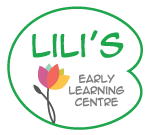Children’s safety and wellbeing will:
- be protected in and around water through supervision and prevention; and
- be promoted through the availability of clean, hygienic water for play and drinking.
Procedure:
The Nominated Supervisor will:
- Provide guidance and education to educators, staff and families on the importance of children’s safety in and around water.
- Ensure work, health and safety practices incorporate approaches to safe storage of water and play.
Educators and staff will:
- Ensure water troughs or containers for water play are filled to a safe level. These activities will be supervised at all times and containers or troughs will be emptied onto garden areas after use. Children will be discouraged from drinking from these water activities.
- Teach children about staying safe in and around water.
- Empty buckets used for cleaning immediately after use. No buckets are left in play areas or accessible to children.
- Provide a source of clean drinking water at all times (own drink bottles from home). This water will be supervised to ensure that it is safe and hygienic for consuming.
The safety and supervision of children in and around water is of the highest priority.
This relates to water play, excursions near water, hot water, drinking water and hygiene practices with water.
Children will be supervised at all times during water play experiences.
2011: 168
Operational Safety
- Grey water systems or water tanks will be labelled with “do not drink” signage and the children will be supervised in this area to make sure they are not accessing this water for drinking. Educators will discuss with the children that this water is for the purpose of play and not for consumption.
- Hot water accessible to children will be maintained at the temperature of 43.5oC. Thermostatic valves to be tested and serviced annually by a plumber.
- A risk assessment will be conducted prior to any excursion taking place. Particular attention will be focused upon water safety where the excursion is near a body of water.
- Adults will not consume hot drinks around children.
- Water for pets at the setting must be changed regularly and only be accessible to children when adults are present.
Education and Care Services National Regulations 2012: 168
Links to National Quality Standard: 2.1.1; 2.3.2; 7.3.5
National Health and Medical Research Council - www.nhmrc.gov.au
NSW Department of Health - www.health.nsw.gov.au
Community Childcare Cooperative Sample Policies –www.ccccnsw.org.au
Policy reviewed August 2017

